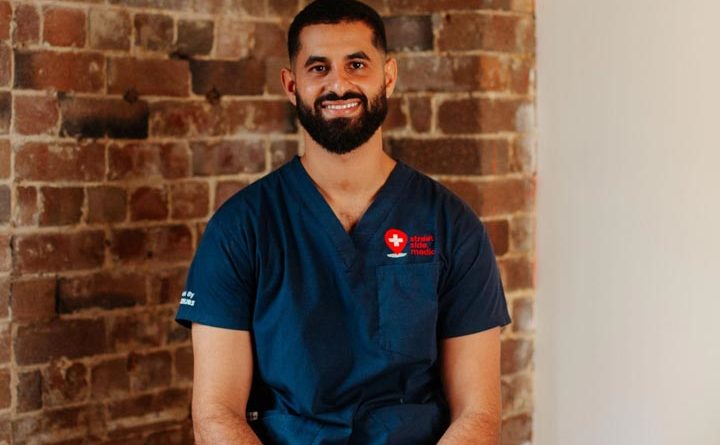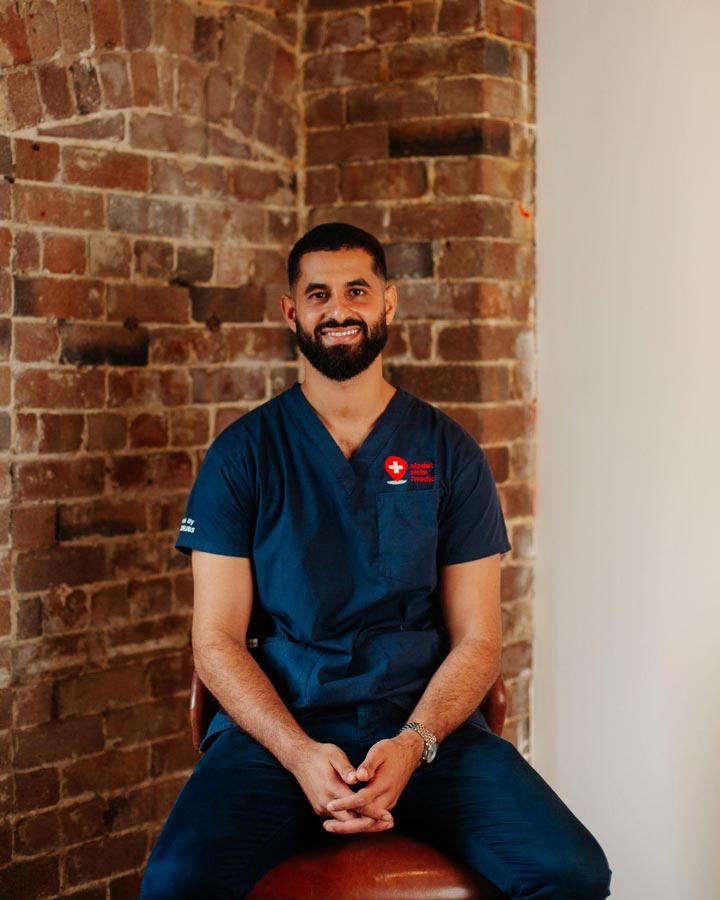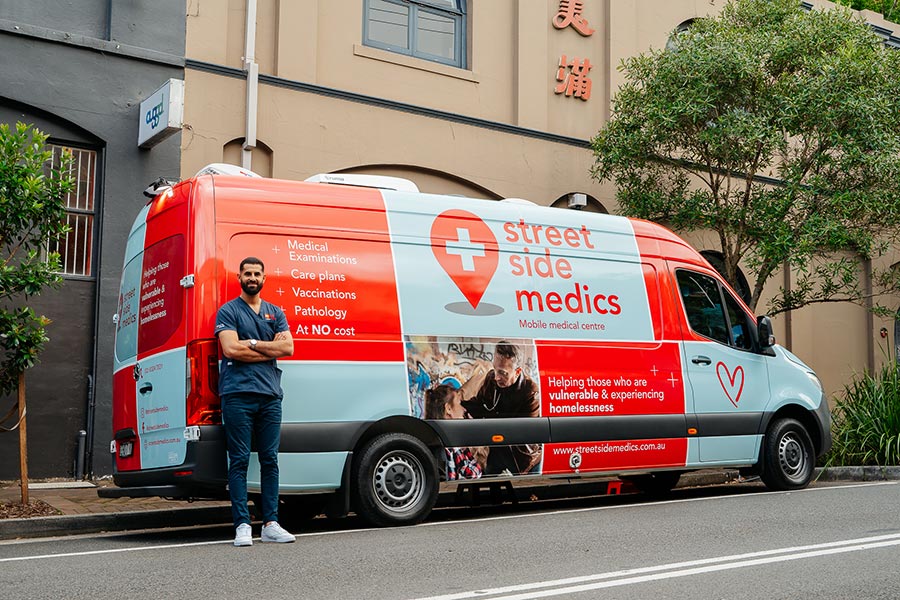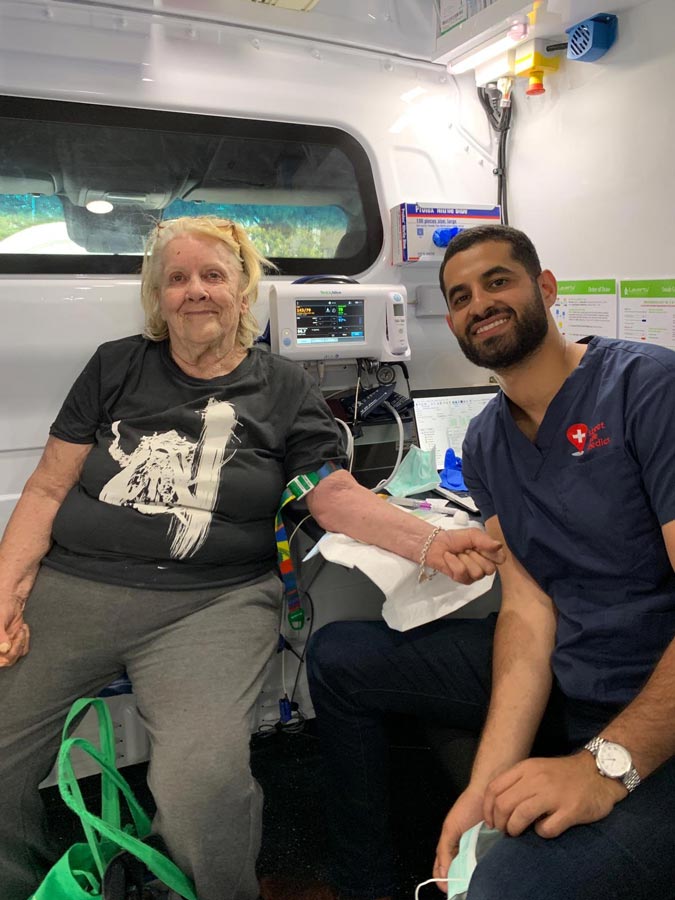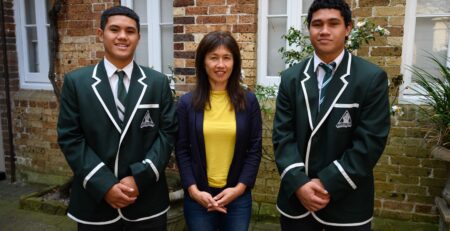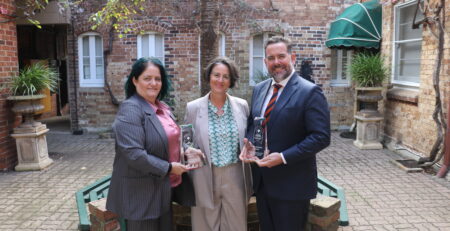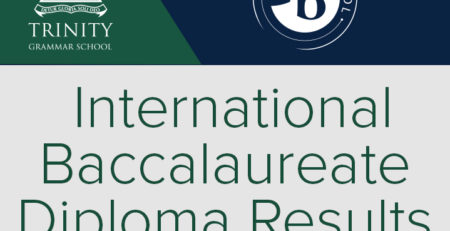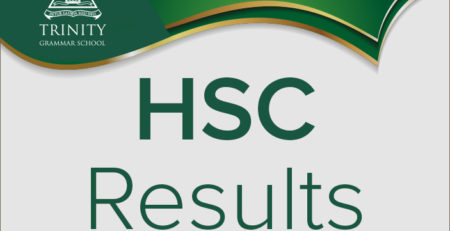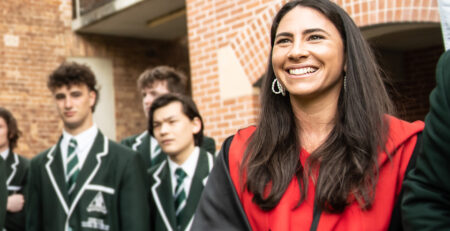Delivering Health To The Homeless
“Trinity turned me into the man I am today”
Dr Daniel Nour, who has been named NSW Young Australian Of The Year, says his free mobile health service for Sydney’s homeless might never have become a reality without the inspiration provided by Trinity
Dr Nour works full-time at Royal North Shore Hospital but on top of that devotes the same commitment every week to his passion project, Street Side Medics.
The not-for-profit operates two vans which take GPs and other health professionals to existing food services and homeless shelters three nights a week in order to bring health care to the most vulnerable.
Since founding the service last August, the Class of 2013 graduate has watched it grow to a staff of 220, more than half of them of them doctors.
Every single one is a volunteer, barring a newly appointed CEO.
Street Side Medics has already treated hundreds of patients, and “without doubt” saved lives – all while working through the pandemic with the strictest of policies, meaning not one doctor has contracted COVID.
“We have treated some of the sickest, most neglected people I’ve ever seen in medicine, and we have been able to make some significant changes to their health and their lives,” Dr Nour said.
He credited Trinity with nurturing his social conscience and influencing the values which have helped him to help so many of Sydney’s neediest people.
“The School has had a big impact on me as a person. It’s absolutely correct to say that without Trinity, I really question whether something like this would have happened,” he said.
“Trinity helped shape the values and beliefs that I have carried through to Street Side Medics.
“It has a great social conscience as a school, and I think its values rubbed off on me in an inspirational way.
“It wasn’t about being the biggest and the best, but being as good as you can be to improve society as a whole.”
He said Trinity was without peer when it came to taking a holistic approach to education.
“It has a unique way of dealing with each student. It seriously stresses the importance of being well-rounded, developing social skills and business acumen, and thinking outside the box.
“I was a rough diamond – well, I don’t like to call myself a diamond – but it softened all of my rough edges and turned me into the man I am today.
“I was quite cheeky; I talked a lot and got in trouble a lot, so I got a lot of detentions.”
Brad Wirth, now Director of Campus Administration, taught him chemistry and was one of the teachers who “helped keep me on the straight and narrow”.
Dr Nour grew up in a Christian family, saying: “My faith is a big part of me, and it was strengthened at Trinity.”
He said if he went on to win an award, he would be pleased to accept it not for himself but for “all of the people who made this dream a reality”.
While still a student at Trinity, he volunteered for a homeless food service called COCOS, run by his church, The Coptic Orthodox Christian Church at Kingsgrove.
He enjoyed sports including basketball, rugby and table tennis at school, although he was more academically oriented. He won a coveted All Rounders Award in Year 12 for achieving the highest band in every subject before going on to study medicine at James Cook University in Queensland.
The catalyst for Street Side Medics came one day in London, where Dr Nour had undertaken an elective at the Imperial College, when he went to the aid of a homeless man having a seizure.
The man’s friends indicated he didn’t drink or use drugs, but had had several seizures over the previous months.
“I remember thinking, why hasn’t anyone taken him to see a doctor? And this one (homeless) lady, I’ll never forget her face, said, ‘Daniel, the NHS barely cares about you, let alone us’.
“That really hit a soft spot with me; it really upset me. I did my research hoping that this was not an issue in Sydney, but I was surprised to find out it was. There were too many barriers in the way of getting vulnerable people to health care. The only way was to take health care to them.”
Street Side Medics has a policy of turning no-one away. There are two teams of volunteers. The team outside the van usually consists of a social worker, physiotherapist, dietician and other general volunteers, who approach individuals to see if they have any health issues. Inside the van, there is a GP and a nurse.
Dr Nour says trust and respect underpin the whole service. “All of the staff come because they want to be there, and because they care. And that translates into the way they communicate with the patients.”
He cites one of his favourite sayings, from Confucius: Those who say they can, and those who say they can’t, are both right.
“Trinity taught me to have belief in myself,” he said.
“Even today I often question myself and suffer from impostor syndrome. I wake up and think, ‘Am I really a doctor?’
“And then you just get on and do what you do. With passion, you can do anything.”
Dr Nour now joins the eight state and territory finalists for the national awards to be announced on Australia Day.

